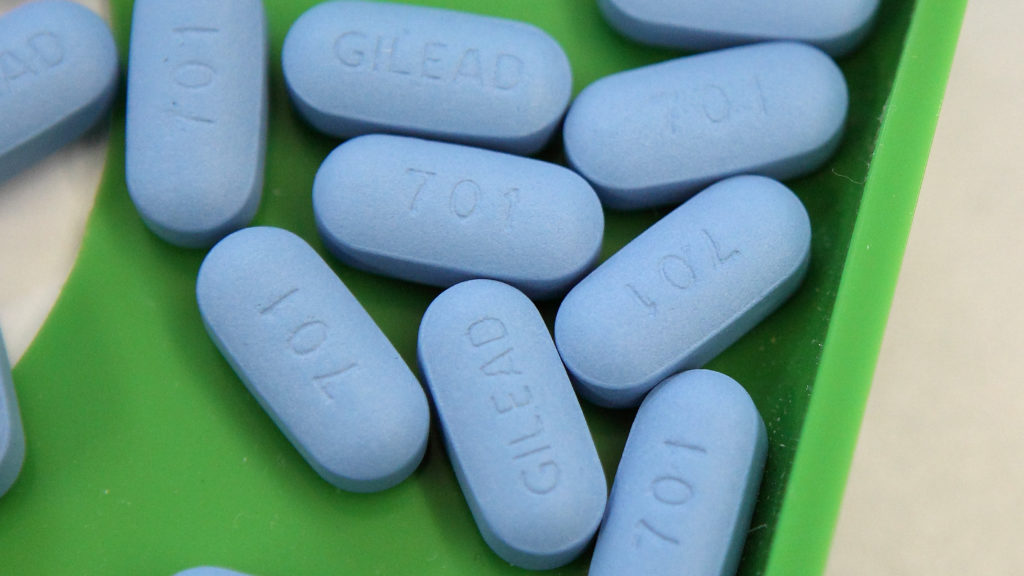Want to stay on top of the science and politics driving biotech today? Sign up to get our biotech newsletter in your inbox.
Good morning. Jason Mast here filling in for Elaine. We’ve got a dramatic vote on psychedelic therapy, record drug shortages, bad (maybe?) news for Biomarin, and a new kind of PrEP.
advertisement
The need-to-know this morning
- Eli Lilly Chief Financial Officer Anat Ashkenazi is leaving the company for a job outside the pharmaceutical industry, Lilly announced. Askenazi is joining Alphabet and Google as its new CFO. A search for a new CFO at Lilly is underway.
FDA panel recommends against approving MDMA-assisted therapy
An advisory committee yesterday voted overwhelmingly against both questions put to it by the Food and Drug Administration on MDMA-assisted therapy, effectively recommending against what would be the first approval of a psychedelic drug. The FDA doesn’t have to follow the recommendations of advisory panels but generally does.
The vote is a substantial blow to Lykos, the company that brought the application, and to the broader movement to develop psychedelics into FDA-approved treatments for various mental health conditions. Over the last decade, investors have poured hundreds of millions of dollars into biotechs promising to turn molecules like psilocybin, DMT, ibogaine, and LSD into drugs for conditions such as depression, anorexia, and addiction. MDMA was the first to go before the FDA.
Lykos’ data seemed promising: In one study, 67% of patients who received MDMA no longer met PTSD diagnostic criteria, compared to 32% of placebo patients. And the effort won support among many veterans, who emphasized the lack of alternatives. But the company faced questions about functional unblinding — participants could generally figure out if they received a psychedelic — and accusations it suppressed safety concerns, such as suicidal ideation, along with concerns about how the therapy would be administered.
advertisement
AstraZeneca is Real Madrid, and other ASCO takeaways
Our triumvirate of cancer correspondents boarded flights yesterday back from Chicago. Some top takeaways from the oncology confab:
- “AstraZeneca is the Real Madrid of ASCO. Six plenary podiums in a row.”
- “If we’re talking about this ASCO five years from now, it will probably be because of the CAR-T results in liver cancer from AstraZeneca and AbelZeta.”
- “A lot of chatter about finding better ways to scale back treatments when possible — one of the core tenets in oncology.”
Drug shortages reach record high
U.S. drug shortages are growing longer and more frequent, according to a new report from U.S. Pharmacopeia, an independent organization that develops standards for medicines. The number of drug shortages has increased over the last decade, while an average shortage now lasts more than three years, compared to two years in 2020. Of 125 drugs in short supply, 27 had been that way for over five years.
A key driver is drugs that are actually too cheap. Most medicines in shortage less than $5, the report found. Low margins for generics drive out manufacturers. If one of the remaining producers then experiences a quality control issue, drugs can become scarce.
Possible solutions include having the U.S. government provide incentives for manufacturers to upgrade facilities and hospitals to create so-called buffer inventories, while also paying bonuses to hospitals and doctors that employ contracting practices that help support sustainable supply. Read more from Ed Silverman.
Biomarin suffers another setback, maybe
New Biomarin CEO Alexander Hardy set a clear priority in his first public presentation in January: expanding the market for Voxzogo, its drug for achondroplasia, the most common form of dwarfism. Voxzogo was particularly vital because Roctavian, a hemophilia gene therapy Hardy’s predecessor spent years hyping, was — and is — facing a catastrophically bad launch.
So it wasn’t good news yesterday when a competitor, BridgeBio, announced data suggesting its own experimental pill may be more effective than Voxzogo. A “substantial headwind to BioMarin’s growth in the long-term,” Baird analyst Jack Allen wrote.
Nevertheless, Biomarin’s shares rose about 3.5% yesterday. That seems to reflect two things: Investors already baked competitive threats into Biomarin’s stock price, which had fallen nearly 30% from the start of 2023. And being first-to-market has its perks. Stifels analyst Paul Matteis wrote last month that by the time BridgeBio’s drug reaches market — likely 2027 — Voxzogo will likely be standard-of-care for young achondroplasia patients and up for approval in hypochondroplasia, another form of dwarfism.
Testing begins for a new form of PrEP
The NIH said yesterday it began two trials to see whether a new Gilead antiviral can prevent HIV infections with just one injection every six months. The results, though not expected until 2027 and 2028, could transform HIV prevention.
Although oral prophylaxis, called PrEP, has been available since 2012, it has gone vastly underused, because of cost and other barriers, as well as the difficulty for many of taking a pill every single day. Given the struggles the HIV vaccine field has faced, long-acting PrEP marks the best near-term hope for providing individuals with extended protection. A once-every-eight week shot was approved in 2021, although global access has been a struggle. Once-a-year shots are in early development.
More reads
- U.K. drug pricing regulator NICE endorses Eli Lilly’s Obesity drug Zepbound, with a catch, Fierce Pharma
- Medicare Advantage plan’s quality ratings were incorrectly calculated by government, judge rules, STAT
- Novo Holdings’ head of Asia on investing in ‘China for China,’ and staying out of biotech (for now), Endpoints
- Startup brings new hope to the pursuit of reviving frozen bodies, Bloomberg
Correction: A previous version of this post incorrectly referred to Voxzogo, Biomarin’s dwarfism drug. It is an injectable, not a pill.

